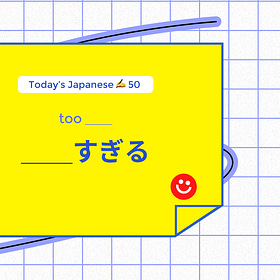こんにちは! In daily conversations among young people in Japan, there are some slang words they use so naturally that they often don’t even realize it. This time let’s explore some of these commonly used slang expressions that make casual chats more lively and fun!
なさげ(na-sage)
なさげ is used to express the sense that something “seems to not exist” or “doesn’t seem likely.” It’s attached to the negative form of verbs or adjectives.
げ has long been used in classical Japanese to express “an air of” or “a seeming appearance,” often seen in words like:
•楽しげ (tanoshige): “Seeming happy.”
•悲しげ (kanashige): “Seeming sad.”
When attached to 無(な)い( “not exist”, “there isn’t”, or “doesn’t have.”), it created なさげ, used to indicate the impression or feeling that something is lacking or absent.
Example Sentence
A:ひろし今日(きょう)来(こ)なさげじゃない?
Doesn’t it seem like Hiroshi isn’t coming today?B: さっき電話(でんわ)した時(とき)は来(く)るって言(い)ってたけどな〜。
He said he’d come when I called him earlier, though.
💡We don’t say “ありさげ” to mean “seems to exist.” Instead, we simply use “あり” (exists) or a more descriptive phrase like 良(よ)さげ (seems good).
良さげ(よさげ yo-sage)
良さげ (よさげ, yo-sage) is a colloquial expression in Japanese that means “seems good” or “looks nice.” It’s a casual and slightly softer way to express that something gives off a good impression or has a positive vibe.
Example Sentence
A: あの二人(ふたり)、初対面にしては仲良さげじゃない?
Don’t those two seem pretty friendly for people who just met?B: 高校(こうこう)のクラスメートらしいよ。
Apparently, they were classmates in high school.
今週も読んでくれてありがとう!また来週✌️!
Thanks for reading this newsletter! See you next week ✌️!
Previous Post 🗒️
__すぎる too __
Thanks for reading FusenClub! Subscribe for free to receive new posts and support my work.
Thanks for reading FusenClub! Subscribe for free to receive new posts and support us🫶








Thanks for this. I can’t help but think about how ~さげ means ~から in 庄内弁, so んださげ means ですから :)